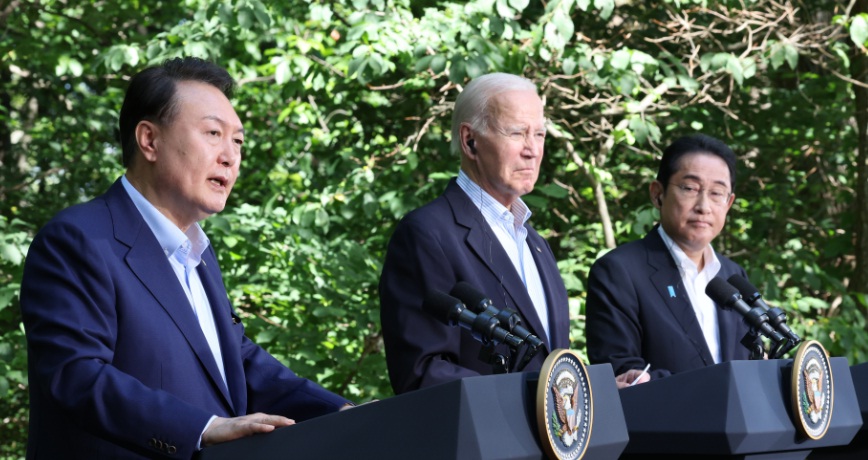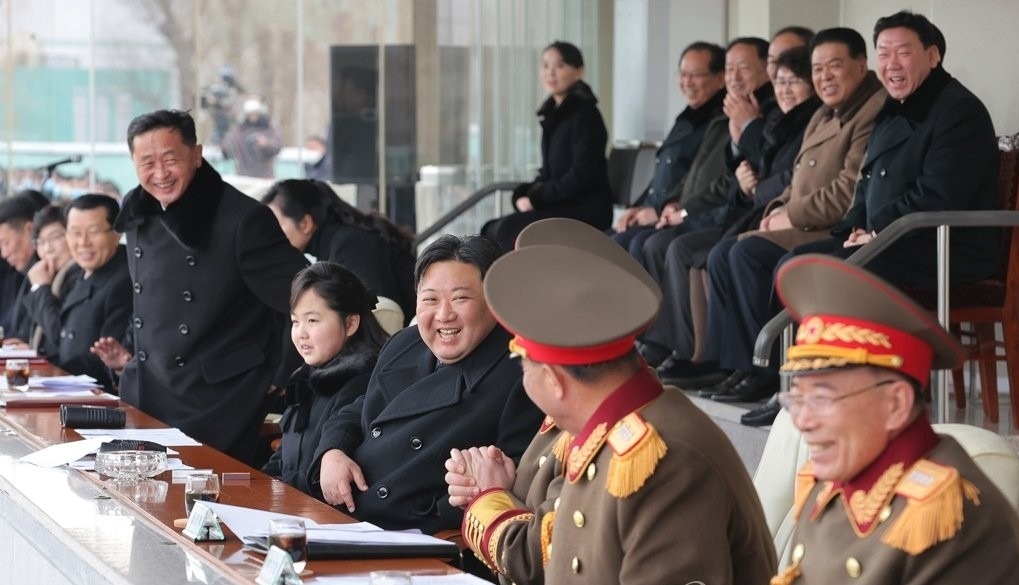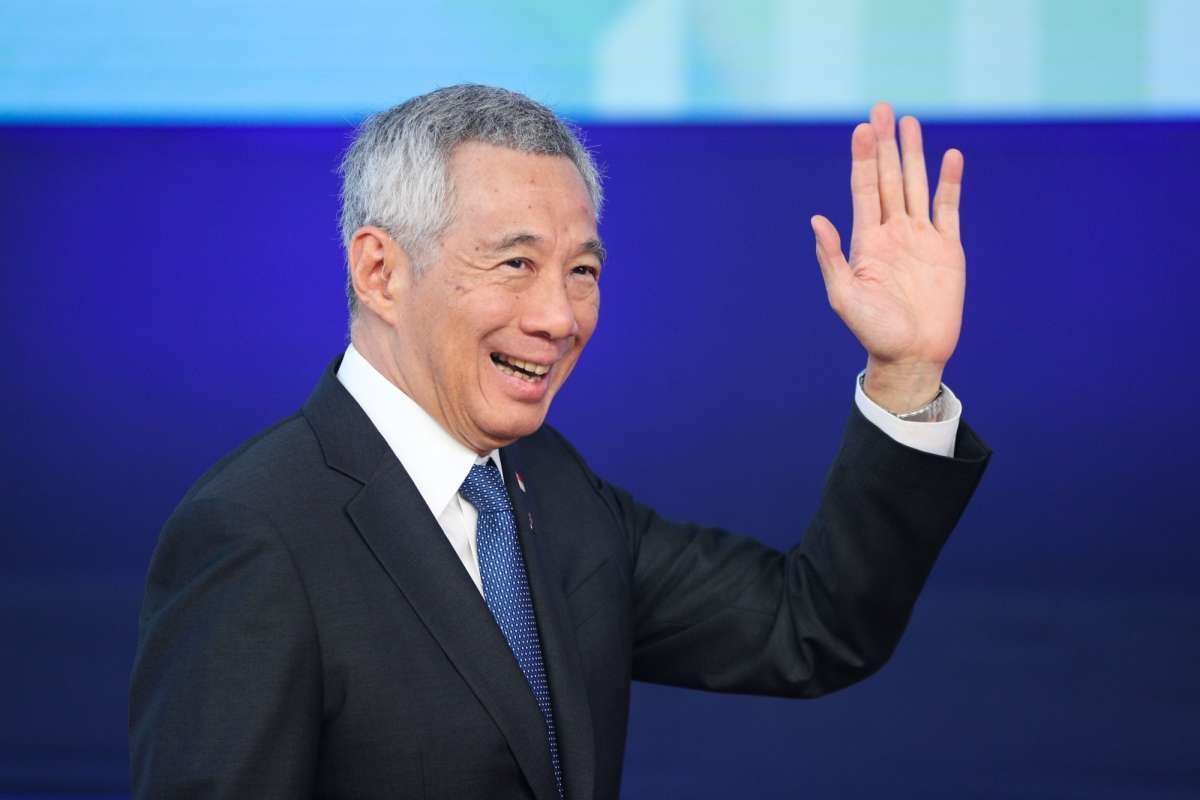The three leaders agreed to consult one another in the event of common threats, dubbed the “Commitment to Consult.”…reports Asian Lite News
The latest trilateral summit among the leaders of South Korea, the US and Japan at Camp David has helped establish a “basic framework” for coping with North Korea’s nuclear and missile threats, Seoul’s presidential office said on Sunday.
President Yoon Suk Yeol, US President Joe Biden and Japanese Prime Minister Fumio Kishida agreed Friday to significantly expand trilateral security cooperation, pledging to immediately consult one another in the event of common threats, hold annual joint military exercises and closely cooperate to deal with North Korea’s threats, Yonhap news agency reported.
“(With the trilateral summit), a basic framework to tackle North Korea’s nuclear and missile threats has been set up,” presidential spokesperson Lee Do-woon said in a briefing.
Lee highly appraised the meaning of three key documents adopted by the leaders at the first standalone trilateral summit among the three nations.
“It is very meaningful that it was the first time that the three countries publicly stated the status of their mutual relations to the international community by adopting the documents,” Lee said.
The three leaders agreed to consult one another in the event of common threats, dubbed the “Commitment to Consult.”
In a joint statement titled “The Spirit of Camp David,” they agreed to hold annual trilateral summits, conduct three-way defense exercises on an annual basis and operationalize the real-time sharing of missile warning data on North Korea by the end of the year.
A third document outlining the guiding principles for trilateral cooperation, called “Camp David Principles,” was also adopted at the summit.
Touching on the economy, Lee said the leaders agreed to expand technological and personnel exchanges in advanced areas, such as artificial intelligence and space, which will pave the way for securing engines of new growth and creating jobs.
“The combined economic size of the three nations accounts for about 31 percent of global gross domestic product. This means an overwhelming economic power that cannot be compared to any other economic blocs or forces,” he added









